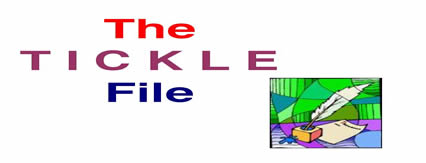
|
The Tickle File is ftm's daily column of media news, complimenting the feature articles on major media issues. Tickle File items point out media happenings, from the oh-so serious to the not-so serious, that should not escape notice...in a shorter, more informal format.
We are able to offer this new service thanks to the great response to our Media Sleuth project in which you, our readers, are contributing media information happening in your countries that have escaped the notice of the international media, or you are providing us information on covered events that others simply didn't know about. We invite more of you to become Media Sleuths. For more information click here. |
Hot topics click link for more
Every change to Hungary’s media rules are quite transparent in intent: control over information. New amendments, passed in June, limit the length of television news programs. The Fidesz party sponsored measures require “channels of major influence” - private channel RTL Klub, government-friendly TV2 and state TV channel M1 - make changes in their news output by August 1st. Some have already moved forward, reported media portal media1.hu (July 17).
RTL Klub’s Híradó (Newsletter) program will be shortened by 8 minutes from July 31 while its soft-news magazine Fókusz (Focus) program will be extended. TV2 is complying by splitting early evening Tényeket (Facts) into two parts. The length of Facts has been shortened to 25 minutes. After a five-minute commercial break Facts Plus arrives until the top of the hour. M1 has not revealed any changes due to the new rules. A study by media regulator NMHH, released in June, showed news broadcasts on TV2 focused on crime, RTL Klub on politics and M1 on migration issues. (See more about media in Hungary here)
In 2016 regulator NMHH adopted the “channels of major influence” designation - shortened in Hungarian to “JBE” - to identify broadcasters with an average audience share of at least 15%. The new rules end the requirement for JBE TV broadcasters to provide newscasts in morning hours. The amendments also loosened regulation of radio broadcasting ownership and licensing.
|


